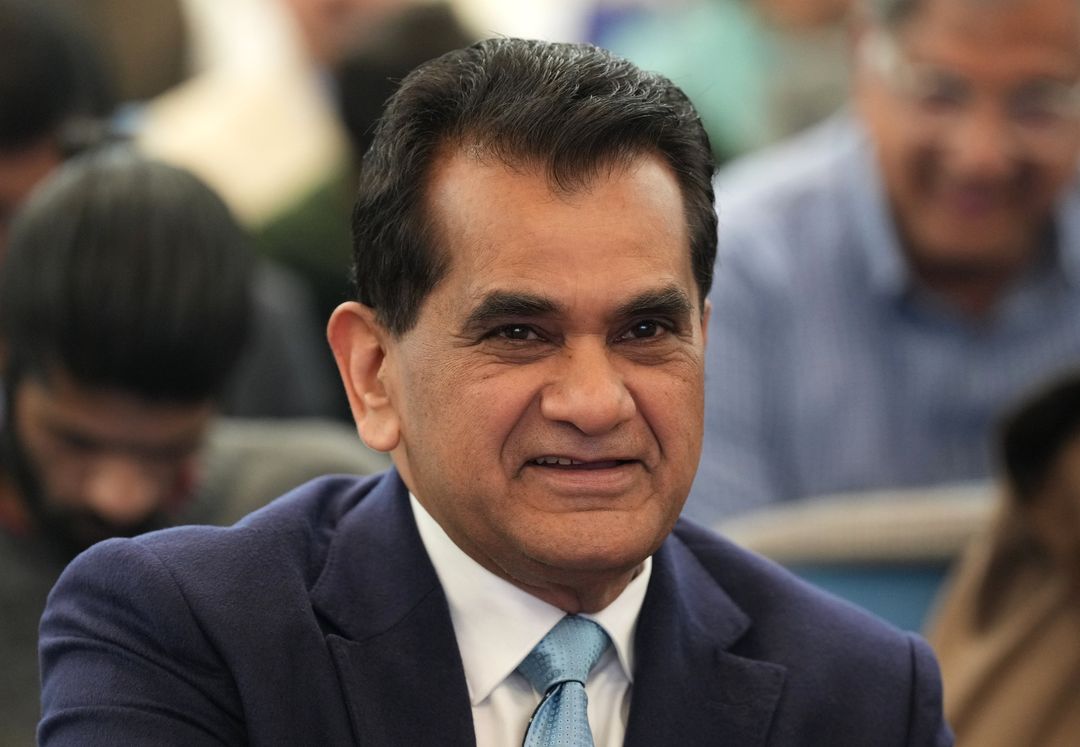Alwar, Rajasthan, Feb 26: Former NITI Aayog CEO and India's G20 Sherpa Amitabh Kant emphasized the need for India to capitalize on the emerging global economic vacuum created by geopolitical instability. Speaking at the Centre for Science and Environment's annual Anil Agarwal Dialogue, Kant highlighted India's potential to lead in clean-tech manufacturing, particularly in battery production and electric mobility.
Addressing the audience, Kant pointed out that prolonged geopolitical conflicts have fractured global trade and supply chains. However, he sees this as a major opportunity for India to position itself as a dominant player in sustainable industries. "The period of stability post-World War II has ended, leading to a breakdown in supply chains worldwide. But this also creates a massive vacuum that India can fill," he said.
Citing China's strategic response when the U.S. withdrew from the Paris Agreement in 2016, Kant noted that Beijing now controls 80% of the world's critical minerals. India must take similar decisive steps to secure its role in clean-tech innovation, he asserted. "If we do not act now, we risk becoming heavily dependent on imports from China, much like our dependence on oil today," he cautioned.
Governance Failures Worsening Urban Pollution
Kant also addressed India's urban governance crisis, blaming poor municipal management for severe pollution and inefficiency in service delivery. "If 42 out of the 50 most polluted cities in the world are in India, this is a direct failure of municipal governance," he said, dismissing financial constraints as an excuse for the crisis.Rethinking Water and Electricity Pricing
Highlighting the pressing issue of resource wastage, Kant called for rational pricing of water and electricity. "India, with 17% of the world's population, has only 4% of global water resources. Yet, 90% of this water is consumed by agriculture, particularly for water-intensive crops like rice and sugarcane. We are effectively exporting virtual water through basmati rice exports," he explained.He criticized the excessive withdrawal of groundwater, largely driven by free electricity subsidies. Advocating a tiered pricing model, Kant proposed that those consuming less should pay lower rates, while heavy users should bear higher costs. He pointed to Singapore’s economic transformation as a model, attributing its growth from a $600 per capita income in 1965 to $90,000 today to governance reforms and efficient resource management.
Criticism of Populist Freebies
Kant also voiced strong opposition to populist policies that provide free services without ensuring economic sustainability. "The culture of free doles, including the Kejriwal model of governance, is financially unsustainable. Such practices will eventually bankrupt the country," he warned.He concluded by stressing the urgent need for governance reforms at all levels, stating, "India's biggest challenge is not a lack of finances but a lack of good governance. Addressing this will be key to the country's future success."

